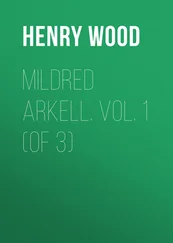Henry Wood - Trevlyn Hold
Здесь есть возможность читать онлайн «Henry Wood - Trevlyn Hold» — ознакомительный отрывок электронной книги совершенно бесплатно, а после прочтения отрывка купить полную версию. В некоторых случаях можно слушать аудио, скачать через торрент в формате fb2 и присутствует краткое содержание. Жанр: foreign_prose, literature_19, foreign_antique, на английском языке. Описание произведения, (предисловие) а так же отзывы посетителей доступны на портале библиотеки ЛибКат.
- Название:Trevlyn Hold
- Автор:
- Жанр:
- Год:неизвестен
- ISBN:нет данных
- Рейтинг книги:4 / 5. Голосов: 1
-
Избранное:Добавить в избранное
- Отзывы:
-
Ваша оценка:
- 80
- 1
- 2
- 3
- 4
- 5
Trevlyn Hold: краткое содержание, описание и аннотация
Предлагаем к чтению аннотацию, описание, краткое содержание или предисловие (зависит от того, что написал сам автор книги «Trevlyn Hold»). Если вы не нашли необходимую информацию о книге — напишите в комментариях, мы постараемся отыскать её.
Trevlyn Hold — читать онлайн ознакомительный отрывок
Ниже представлен текст книги, разбитый по страницам. Система сохранения места последней прочитанной страницы, позволяет с удобством читать онлайн бесплатно книгу «Trevlyn Hold», без необходимости каждый раз заново искать на чём Вы остановились. Поставьте закладку, и сможете в любой момент перейти на страницу, на которой закончили чтение.
Интервал:
Закладка:
He stood leaning out of the casement window the night before he was to enter; his aching brow bared to the cold air, cloudy as the autumn sky. Treve was fast asleep, in his own little bed in the far corner, shaded and sheltered by its curtains; but there was no such peaceful sleep for George. The thoughts he was indulging were not altogether profitable; and certain questions which arose in his mind had been better left out of it.
"What right have they so to dispose of me?" he soliloquised, alluding, it must be confessed, to the trio, Chattaway, Mrs. Ryle, and Apperley. "They know that if my father had lived, they would not have dared to urge my being put to it. I wonder what it will end in? I wonder whether I shall have to be at it always? It is not right to put a poor fellow to what he hates most of all in life, and will hate for ever and for ever."
He gazed out at the low stretch of land lying under the night sky, looking as desolate as he. "I'd rather go for a sailor!" broke from him in his despair; "rather–"
A hand on his shoulder caused him to start and turn. There stood Nora.
"If I didn't say one of you boys was out of bed! What's this, George? What are you doing?—trying to catch your death at the open window."
"As good catch my death, for all I see, as live in the world, now," was George's answer.
"As good be a young simpleton and confess it," retorted Nora, angrily. "What's the matter?"
"Why should they force me to that horrible place at Barmester?" cried George, following up his thoughts, rather than answering Nora. "I wish Chattaway had been a thousand miles away first! What business has he to interfere about me?"
"I wish I was queen at odd moments, when work seems coming in seven ways at once, and only one pair of hands to do it," quoth Nora.
George turned from the window. "Nora, look here! You know I am a gentleman born and bred: is it right to put me to it?"
Nora evaded an answer. She felt nearly as much as the boy did; but she saw no way of escape for him, and therefore would not oppose it.
There was no way of escape. Chattaway had decided it, Mrs. Ryle had acquiesced, and George was conducted to the new house, and took up his abode in it, rebellious feelings choking his heart, rebellious words rising to his lips.
But he did his utmost to beat down rebellion. The charge of his dead father was ever before him, and George was mindful of it. He felt as one crushed under a weight of despair; as one who had been rudely thrust from his proper place on earth: but he constantly battled with himself and his wrongs, and strove to make the best of it. How bitter the struggle, none save himself knew: its remembrance would never die out from memory.
The new work seemed terrible; not for its amount, though that was great; but from its nature. To help make up this parcel, to undo that; to take down these goods, to put up others. He ran to the post with letters—and that was a delightful phase of his life, compared with the rest—he carried out brown paper parcels. He had to stand behind the counter, and roll and unroll goods, and measure tapes and ribbons. You will readily conceive what all this was to a proud boy. George might have run away from it altogether, but that the image of that table in the sitting-room, and of him who lay upon it, was ever before him, whispering to him not to shrink from his duty.
Not a moment's idleness was George allowed; however the shopmen might enjoy leisure intervals when customers were few, there was no such interval for him. He was the new scapegoat of the establishment; often doing the work that of right did not belong to him. It was perfectly well known to the young men that he had entered as a working apprentice; one who was not to be particular in work he did, or its quantity; and therefore he was not spared. He had taken his books with him, classics and others; he soon found he might as well have left them at home. Not one minute in the twenty-four hours could he devote to them. His hands were full of work until bed-time; and no reading was permitted in the chambers. "Where is the use of my having gone to school at all?" he would sometimes ask himself. He would soon become as oblivious of Latin and Greek as Mr. Chattaway could wish; and his prospects of adding to his stock of learning were such as would have gladdened Farmer Apperley's heart.
One Saturday, when George had been there about three weeks, and the day was drawing near for the indentures to be signed, binding him to the business for years, Mr. Chattaway rode up in the very costume that was the subject of Farmer Apperley's ire, when worn by those who ought not to afford to wear it. The hounds had met that day near Barmester, had found their fox, and been led a round-about chase, the fox bringing them back to their starting-point to resign his brush; and the master of Trevlyn Hold, on his splashed hunter, in his scarlet coat, white smalls and boots, splashed also, rode through Barmester on his return, and pulled up at the door of Wall and Barnes. Giving his horse to a street boy to hold, he entered the shop, whip in hand.
The scarlet coat, looming in unexpectedly, caused a flutter in the establishment. Saturday was market-day, and the shop was unusually full. The customers looked round in admiration, the shopmen with envy. Little chance thought those hard-worked, unambitious young men, that they should ever wear a scarlet coat, and ride to cover on a blood hunter. Mr. Chattaway, of Trevlyn Hold, was an object of consideration just then. He shook hands with Mr. Wall, who came forward from some remote region; then turned and shook hands condescendingly with George.
"And how does he suit?" blandly inquired Mr. Chattaway. "Can you make anything of him?"
"He does his best," was the reply. "Awkward at present; but we have had others who have been as awkward at first, I think, and who have turned out valuable assistants in the long run. I am willing to take him."
"That's all right then," said Mr. Chattaway. "I'll call in and tell Mrs. Ryle. Wednesday is the day he is to be bound, I think?"
"Wednesday," assented Mr. Wall.
"I shall be here. I am glad to take this trouble off Mrs. Ryle's hands. I hope you like your employment, George."
"I do not like it at all," replied George. And he spoke out fearlessly, although his master stood by.
"Oh, indeed!" said Mr. Chattaway, with a false-sounding laugh. "Well, I did not suppose you would like it too well at first."
Mr. Wall laughed also, a hearty, kindly laugh. "Never yet did an apprentice like his work too well," said he. "It's their first taste of the labour of life. George Ryle will like it better when he is used to it."
"I never shall," thought George. But he supposed it would not quite do to say so; neither would it answer any end. Mr. Chattaway shook hands with Mr. Wall, nodded to George, and he and his scarlet coat loomed out again.
"Will it last for ever?—will this dreadful slavery last throughout my life?" broke from George Ryle's rebellious heart.
CHAPTER IX
EMANCIPATION
On the following day, Sunday, George walked home: Mrs. Ryle had told him to come and spend the day at the Farm. All were at church except Molly, and George went to meet them. Several groups were coming along; and presently he met Cris Chattaway, Rupert Trevlyn, and his brother Treve, walking together.
"Where's my mother?" asked George.
"She stepped indoors with Mrs. Apperley," answered Treve. "Said she'd follow me on directly."
"How do you relish linen-drapering?" asked Cris Chattaway, in a chaffing sort of manner, as George turned with them. "Horrid, isn't it?"
"There's only about one thing in this world more horrid," answered George.
"My father said you expressed fears before you went that you'd find the air stifling," went on Cris, not asking what the one exception might be. "Is it hopelessly so?"
Читать дальшеИнтервал:
Закладка:
Похожие книги на «Trevlyn Hold»
Представляем Вашему вниманию похожие книги на «Trevlyn Hold» списком для выбора. Мы отобрали схожую по названию и смыслу литературу в надежде предоставить читателям больше вариантов отыскать новые, интересные, ещё непрочитанные произведения.
Обсуждение, отзывы о книге «Trevlyn Hold» и просто собственные мнения читателей. Оставьте ваши комментарии, напишите, что Вы думаете о произведении, его смысле или главных героях. Укажите что конкретно понравилось, а что нет, и почему Вы так считаете.












